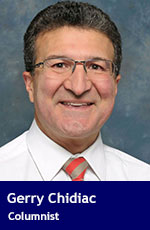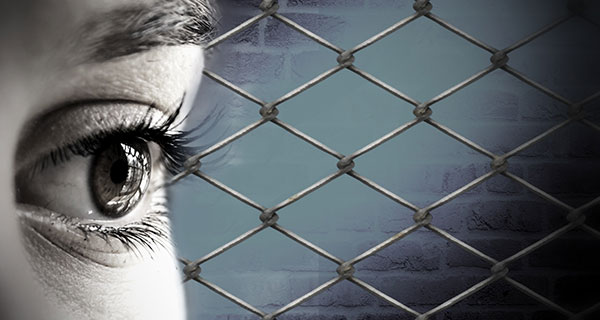 The Cambridge Dictionary defines a concentration camp as, “a place where large numbers of people are kept as prisoners in extremely bad conditions, especially for political reasons.”
The Cambridge Dictionary defines a concentration camp as, “a place where large numbers of people are kept as prisoners in extremely bad conditions, especially for political reasons.”
While no mention of Nazi Germany is made in this definition, names like Dachau and Auschwitz come to mind when we hear this term.
How did the world respond when we learned the truth of the Holocaust?
We vowed: “Never again.” We proclaimed that the deaths of millions of innocent people would not be in vain. We stated that we would hear the voices of survivors and make a world where human rights would be respected, regardless of a person’s ethnicity.
Yet so often we’ve ignored the most horrendous crimes against humanity. And we’re doing it again.
Thousands of Latin American refugees are being detained in squalid and inhumane conditions at the United States border with Mexico. It’s easy to blame Donald Trump for this humanitarian crisis, but the causes are far more profound, and the responsibility to love one’s neighbour is not unique to the American president.
People are fleeing the tropical paradise of Central America for good reason. Centuries of political and economic exploitation have resulted in rampant crime and corruption. El Salvador experienced decades of civil war while both sides were armed by opposing superpowers. Guatemala experienced genocide. The entire region experienced the long-term impact of American interference, legitimized by the Monroe Doctrine. Today El Salvador has the highest murder rate in the world, and murder and sexual violence are also rampant in Honduras and Guatemala.
Historically, Latin American immigration has been good for the American economy. Farmers are now so desperate for workers that they’re engaging prison populations. This too has ethical ramifications, reminding us of days when people were incarcerated for petty crimes in order to provide slave labour for industry.
It’s very easy for Canadians to look south of our border with horror and arrogance while we do nothing. We claim this is an American issue.
But Canada isn’t innocent. Canada is also guilty of political and economic interference in the region. We even signed the Safe Third Country Agreement with the United States regarding Latin American asylum seekers, an act that has been challenged by Amnesty International and several other human rights organizations.
There’s actually a great deal that Canada can do to alleviate the suffering of our neighbours. The United Nations is asking us to take in more refugees. Many of the victims of violence are women and members of the LGBTQ community. There are thousands of families who fear returning home with their children. Yet our government refuses to intervene and our population is eerily silent.
Canadians have responded in the past. In the 1980s, we accepted roughly 16,000 refugees from Central America. These people adapted well to life in Canada. They learned French and English with relative ease, and are productive, taxpaying citizens today.
Why wouldn’t we respond again, especially when our country is facing a growing shortage of both skilled and unskilled labourers?
In the 1930s, the government of Mackenzie King refused to allow Jewish immigrants into Canada. How different things might have been had we been able to see beyond our prejudices and fears. Have we learned nothing from history?
We don’t have to simply watch in horror as our neighbours are detained in what can rightly be called concentration camps. Unlike many people in the world, Canadians are free to discuss the issue, post stories on social media and join with groups appealing for justice. We can also easily contact our elected officials and demand that our country respond to UN appeals to take in refugees.
We can and we need to make a difference.
“Never again” is right now.
Troy Media columnist Gerry Chidiac is an award-winning high school teacher specializing in languages, genocide studies and work with at-risk students.
The views, opinions and positions expressed by columnists and contributors are the author’s alone. They do not inherently or expressly reflect the views, opinions and/or positions of our publication.

